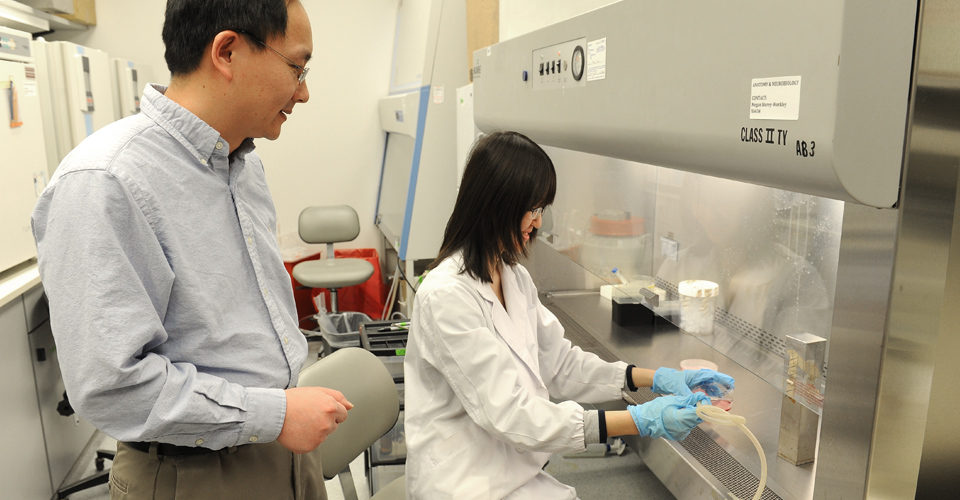For individuals with alcoholic fatty liver disease, abstaining from drinking has been the only way to stop the progression. There may be new hope in the form of a drug-metabolizing enzyme and research by Yanqiao Zhang, M.D., associate professor of integrative medical sciences at Northeast Ohio Medical University. Dr. Zhang has been awarded $217,925 from the National Institute on Alcohol Abuse and Alcoholism, National Institutes of Health (NIH) for his research project “Carboxylesterase 1 in Alcoholic Liver Disease” to study this enzyme.
Alcoholic liver disease is a spectrum of liver disease ranging from alcoholic fatty liver disease to alcoholic hepatitis, which may further progress to liver cirrhosis and liver carcinoma. Part of Dr. Zhang’s metabolic research focuses on alcoholic fatty liver disease: when fat builds up on liver cells, alcoholic liver disease is initiated.
Up to 35 percent of heavy drinkers develop alcoholic hepatitis (inflammation of the liver) and 55 percent of these patients go on to develop cirrhosis of the liver. Severe alcoholic hepatitis can lead to liver failure and death.
Dr. Zhang will do his research using mouse models to study the drug-metabolizing enzyme carboxylesterase 1 (CES1), which breaks down triglycerides and thus increases the burning of fat. Since fat build-up in the liver is a key factor of alcoholic liver disease, preventing the build-up is crucial. CES1 also prevents inflammatory response. Dr. Zhang plans to focus on studying the enzyme to better understand its role.
In addition to studying alcoholic fatty liver disease, Dr. Zhang’s lab also investigates non-alcoholic fatty liver disease, atherosclerosis, diabetes and obesity, which are currently supported by three R01 grants from the NIH.
